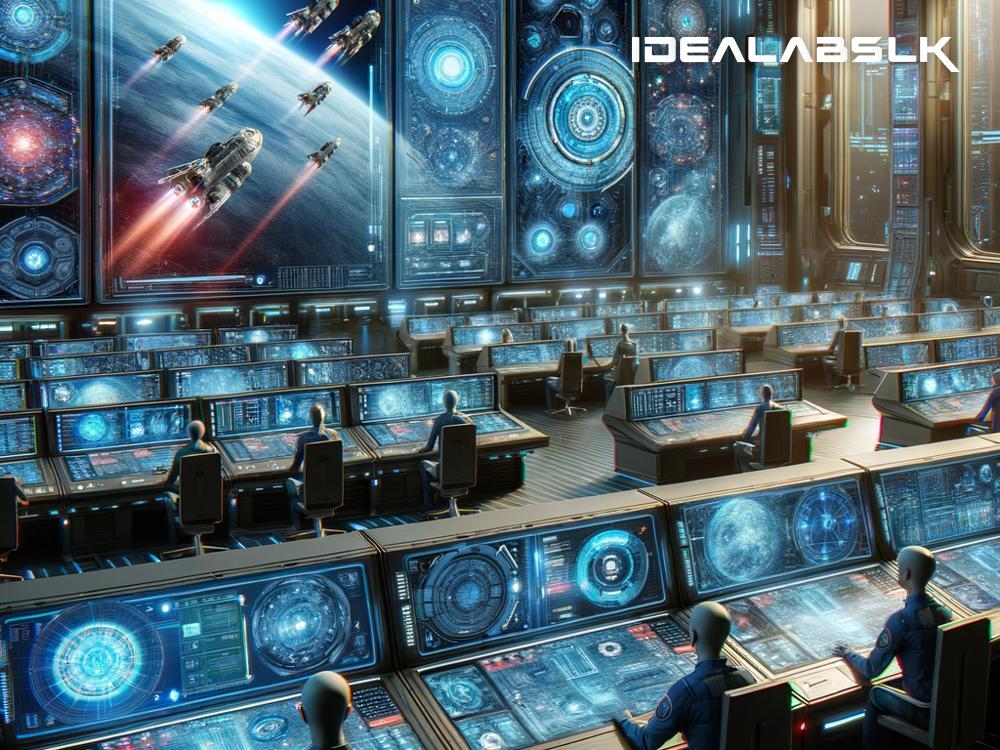The Future is Now: How AI Revolutionizes Space Missions and Protects Astronauts
In the fast-paced world of today, conversations about space travel have moved from the pages of science fiction novels right into our daily news feeds. With agencies like NASA and private companies like SpaceX aiming for the stars, the journey into outer space has never been more in focus. However, space exploration is fraught with dangers and complexities. This is where Artificial Intelligence (AI) comes into play, offering solutions that seemed unimaginable just a few decades ago. By 2024, AI is set to significantly enhance the safety measures for astronauts and improve the efficiency of space missions in remarkable ways.
Ensuring Human Safety: The AI Guardian Angel
First and foremost, the safety of astronauts is paramount. Space is an unforgiving environment, with countless variables that could change in the blink of an eye. Traditional methods, relying solely on human calculations and reactions, are no longer sufficient. AI steps in as a guardian angel, constantly monitoring the health and well-being of those aboard the spacecraft.
Health Monitoring: AI algorithms can predict and identify potential health issues even before they become apparent to the astronauts or the medical team on Earth. By analyzing data patterns and detecting anomalies in vitals, AI ensures that preventive measures can be taken timely.
Environmental Control: In space, the integrity of the spacecraft's environment is crucial. AI systems continually adjust life support systems, ensuring optimal levels of oxygen, temperature, and humidity. This proactive approach prevents potential emergencies.
Improving Mission Efficiency: AI, the Super Navigator and Problem Solver
Navigation through space requires precise calculations and adjustments. In this arena, AI excels, optimizing routes and making real-time decisions that would take humans much longer to compute. These abilities are pivotal in missions to uncharted territories, like distant planets or asteroids, where split-second decisions could mean the difference between discovery and disaster.
Problem Solving: Space missions often encounter unforeseen issues. AI can quickly analyze situations, consider endless variables, and propose solutions faster than human teams. This capability is vital for missions millions of miles from Earth, where communication delays can be life-threatening.
Robotics: AI-driven robots play crucial roles in space exploration. From performing tasks dangerous for humans to exploring harsh terrains of other planets, these robots extend the capabilities of human astronauts. As these robots evolve, they'll undertake more complex tasks, paving the way for human exploration by first ensuring the environments are safe and accessible.
Enhancing Research: AI, the Ultimate Data Analyst
The amount of data collected during space missions is staggering. AI proves to be an invaluable tool in analyzing this data, uncovering patterns and insights that might take humans years to discover. This ability accelerates our understanding of space and enhances the planning of future missions.
Material Science: The development of new materials crucial for longer space travels is expedited by AI, which can predict the properties and potential of new compounds more efficiently than traditional methods.
Astrophysics: AI helps in mapping the universe at an unprecedented pace, identifying cosmic phenomena, and understanding the fundamental laws governing the cosmos. This knowledge is essential for navigating and surviving in space.
Conclusion: A New Era of Space Exploration
As we stand on the brink of extensive space exploration, the role of AI in ensuring the safety of astronauts and improving the efficiency of missions cannot be overstated. AI acts as a guardian, navigator, problem-solver, and researcher, all roles that are essential as humanity steps further into the cosmos.
By 2024, we will likely see more tangible outcomes of AI's involvement in space missions. These advancements promise not only to protect the brave souls venturing into space but also to bring the mysteries of the universe a little closer to home. As technology continues to evolve, the symbiotic relationship between AI and space exploration will undoubtedly become even more profound, opening up possibilities that today, we can barely imagine.
The integration of AI marks the dawn of a new era in space exploration, where the barriers of what's possible are continually being pushed by the dual powers of human curiosity and artificial intelligence. The future of space exploration is not just about reaching new horizons but doing so safely and efficiently, with AI as an integral partner in this extraordinary journey.

